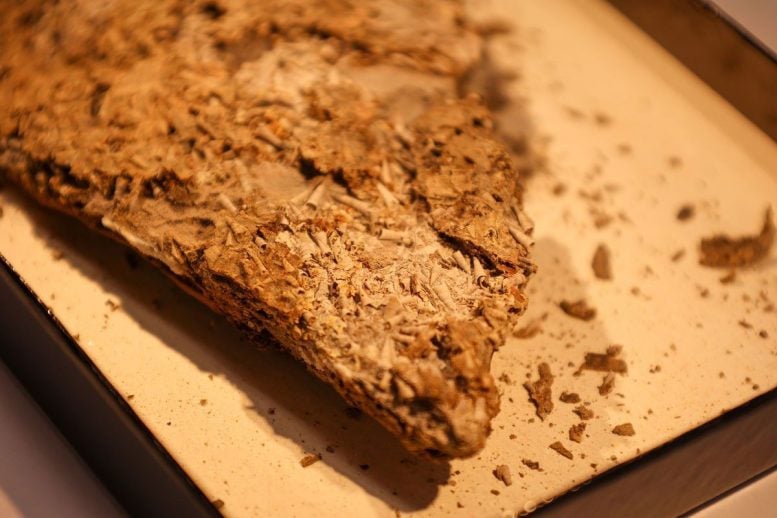
www.historyisnowmagazine.com
Napoleon Bonaparte as a General
Napoleon Bonaparte’s name continues to evoke debate more than two centuries after his ascension to power. Some regard him as a genius, while others perceive him as a tyrant; however, few contest his profound impact. Napoleon not only achieved military victories but also transformed the conduct of warfare and the governance of nations. His success was attributable not merely to luck but to decisive decision-making, relentless ambition, and an exceptional comprehension of leadership for armies and populations. Caleb M. Brown explains.
The Battle of Austerlitz, 2nd December 1805. By Joseph-François Schwebach.David Bell observes that it was Napoleon’s combination of military audacity and political acumen that enabled Napoleon to rise rapidly and maintain prolonged dominance.[1] Simultaneously, Napoleon’s ambition risked overshadowing prudence. His decline was influenced not solely by formidable adversaries and unfavorable timing but also by errors he committed. Jeremy Popkin emphasizes that the revolutionary upheaval that facilitated Napoleon's ascent also revealed the vulnerabilities within the empire he established.[2] Napoleon engaged in risk-taking, and occasionally, he encountered failure as a result. Nevertheless, even after his demise, the institutions he founded and the legacy of his military campaigns continued to influence European political and military strategies. Whether revered or criticized, Napoleon remains among the most extensively studied figures in history. While luck may have played a part in his rise, it was his vision, expertise, and determination that positioned him among the greatest commanders in history. Earlier in Napoleon's career, his brilliance was recognized, and luck played a much smaller role in his strategic understanding. The Italian campaign (1796-1797) demonstrated how Napoleon turned the demoralized and poorly supplied army of Italy into a powerful force. Napoleon’s capability for quick movement and his bold offensive tactics allowed for the outflanking and isolation of the Austrian troops. The victories at Lodi, Arcole, and Rivoli demonstrated Napoleon’s ability to use quickness and surprise to take the initiative against overwhelming enemy forces. [3] Moral and propaganda were another of Napoleon’s strong suits, presenting himself as a savior of the republic in the soldiers’ public reports. In 1798, the Egyptian Campaign was a strategic failure that resulted in the destruction of the French fleet at the Battle of the Nile, but it was also a triumph of image-making for Napoleon.[4] Napoleon intended for the expedition to Egypt to be one of enlightenment, linking his military ambitions to the ideals of enlightenment of the time. Napoleon preserved his image in France despite the setbacks he faced while in Egypt, and upon returning to France, he seized the opportunity of political instability and became the leading figure of the Coup of 18 Brumaire (1799), establishing himself as the First Consul of France. Historian David A. Bell noted that Napoleon understood how to convert military victories into political authority and cultural myth, forging a new model of leadership.[5] Michael Broers adds that Napoleon’s rise was not simply the result of a power vacuum, but rather his uncanny ability to harness revolutionary energies while projecting order and decisiveness.[6] These years would lead to the foundation for Napoleon’s dominance. VictoryThese victories helped pave the way for the apex of Napoleon’s strategic genius, which was soon seen. By 1805 and 1807, Napoleon reached the peak of his military strategic brilliance. The battles of Ulm and Austerlitz were two prime examples of how well Napoleon outthought and maneuvered his enemies. During the Battle of Ulm, Napoleon encircled the Austrian army and efficiently trapped them through a coordinated assault, rather than hastily engaging in a substantial confrontation. The capitulation of over 25,000 Austrian soldiers was not merely a victory; it exemplified Napoleon’s expertise in troop maneuvering, deception, and psychological warfare.[7] Austerlitz was probably the greatest battle of Napoleon’s career. Napoleon had faked a weakening of his flank, baiting the enemy into a daring offensive move. Michael Broers notes that when the enemy took the bait, he struck the center, splitting the line and turning a feint into a rout.[8]Ulm and Austerlitz displayed to the world that Napoleon was a master at strategic manipulation; his 1806 campaign against Prussia also demonstrated his military genius. The employment of speed, innovation, and psychological warfare demonstrated his capacity to incapacitate the adversary. Napoleon’s triumphs at Jena and Auerstadt solidified his role in transforming the nature of warfare. According to Liaropoulos, Napoleon’s organizational revolution was political as much as military: he combined universal conscription with a modular command architecture—the corps system —to create armies capable of rapid maneuver and sustained operations across broad theaters.[9] What was astonishing about this was how the infantry, cavalry, and artillery operated together as a mini-army through communication and central command. Despite the genius of Napoleon, he recognized that luck or fortune played a role in warfare as well. Napoleon wrote, “Luck favors the prepared mind.”[10] He recognized the importance of luck to the one who was prepared. Napoleon’s writings detailed his philosophy: success depended not on blind fortune, but on one's ability to anticipate and seize opportunities. Napoleon highlighted the dysfunction of the enemy as an opportunity for exploitation. Napoleon saw the role of luck as a resource and turned it into a weapon. LimitsYet while Napoleon’s earlier campaigns showed his gifted abilities to turn advantage into achievement, the following years revealed the limits to his vision. From 1808 to 1812, the Peninsular War and the Russian Campaign marked a shift in Napoleon’s dominance. In his correspondence, Napoleon acknowledged his underestimation of the extent of local resistance in Spain and the underestimated influence of the British forces under Wellington. This oversight led to two years of guerrilla warfare, which significantly depleted French resources across the peninsula.[11] In 1812, the Officiels de la Grande Armée articulated how logistical failures, attrition, and environmental hardships further overwhelmed the campaign.[12] These deficiencies transcended operational shortcomings and denoted a misjudgment at the strategic level. This signifies the disintegration of Napoleon’s empire. Following setbacks in Spain and Russia, Napoleon’s adversaries became increasingly confident and cohesive. The Battle of Leipzig in 1813 marked a pivotal turning point, whereby Napoleon was ultimately overwhelmed by the coalition opposing him. Morale had deteriorated among Napoleon’s troops, and his generals had begun to be reluctant to follow him into further wars. It was not solely a single error on the part of Napoleon, but rather an accumulation of strategic miscalculations, isolation in the world, and depleted resources, which ultimately led to the downfall of Napoleon’s reign. Napoleon’s brilliance on the battlefield and his keen understanding of the political climate in France at the time were more than mere luck. It was his vision, adaptability, and command authority that prevailed. Bell and Broers both spoke of Napoleon’s ability to transform battlefield victories into legitimacy and myth. Napoleon’s audacity, ambition, and faith in risk would also lead to his demise. As Popkin observed, the same revolutionary energies that propelled him to power also exposed the vulnerabilities of the empire. The miscalculations in Spain and Russia revealed limitations when confronting persistent adversaries, especially in challenging terrains and with fragile supply lines. The unified coalition opposing Napoleon proved to be overwhelming at the Battle of Waterloo. Napoleon was unable to overcome the opposition. LegacyNevertheless, his legacy endures. Napoleon’s reforms, military modernization, and strategic ideas continue to influence contemporary thought, and we have studied these topics across various fields of learning. Viewing him as a genius, a gambler, or a tyrant, Napoleon Bonaparte remains an enduring figure today. He was widely recognized as a pioneering architect of modern warfare, whose innovative strategies and groundbreaking developments significantly shaped contemporary military tactics and technologies. His ambition knew no bounds, often transcending traditional human limits in pursuit of his revolutionary ideals. While remarkable successes marked his endeavors, they were also characterized by notable failures, each of which offers valuable lessons. These setbacks serve as crucial warnings and learning opportunities for future leaders and military commanders, emphasizing the importance of resilience, adaptability, and ethical considerations in the complex landscape of modern warfare. Did you find that piece interesting? If so, join us for free by clicking here. BibliographyBell, David. Napoleon. A Concise Biography. Corby: Oxford University Press, 2016.Broers, Michael. Napoleon. Faber & Faber, 2014.Chandler, David. The Campaigns of Napoleon. London: Weidenfeld & Nicolson, 1995.Liaropoulos, Andrew N. “Revolutions in Warfare: Theoretical Paradigms and Historical Evidence--the Napoleonic and First World War Revolutions in Military Affairs.” The Journal of Military History 70, no. 2 (2006): 363–84. https://doi.org/10.1353/jmh.2006.0106.Napoleon Bonaparte, Maxims of War, in Napoleon on War, ed. Bruno Colson (Westport, CT: Praeger, 2003), 45. Napoleonica archives: The General Correspondence of Napoleon Bonaparte, Napoleon’s letters onlineNapoleon I, Bulletins officiels de la Grande-Armée (1806), digitized PDF collection, Library of CongressPopkin, Jeremy D. A Short History of the French Revolution. New York, NY: Routledge, 2020.Rothenberg, Gunther E. The Art of Warfare in the Age of Napoleon. Chalford: Spellmount, 2007.1. David A. Bell, Napoleon: A Concise Biography (Oxford University Press, 2015), 72. 2. Jeremy D. Popkin, A Short History of the French Revolution, 7th ed. (Routledge, 2020), 94. 3. Gunther E. Rothenberg, The Art of Warfare in the Age of Napoleon (Bloomington: Indiana University Press, 1980), 103-1054. Gunther, 119-1215. Bell, 43-476. Michael Broers, Napoleon: Soldier of Destiny (New York: Pegasus Books, 2016), 92-977. David G. Chandler, The Campaigns of Napoleon (New York: Scribner, 1966), 438-447. 8. Broers, 172-1819. Andrew N. Liaropoulo, “The Napoleonic Revolution in Military Affairs,” Journal of Military History, in Revolutions in Warfare: Theoretical Paradigms and Historical Evidence. 10. Napoleon Bonaparte, Maxims of War, in Napoleon on War, ed. Bruno Colson (Westport, CT: Praeger, 2003), 45. 11. Napoleonica archives: The General Correspondence of Napoleon Bonaparte, Napoleon’s letters online12. Napoleon I, Bulletins officiels de la Grande-Armée (1806), digitized PDF collection, Library of Congress












